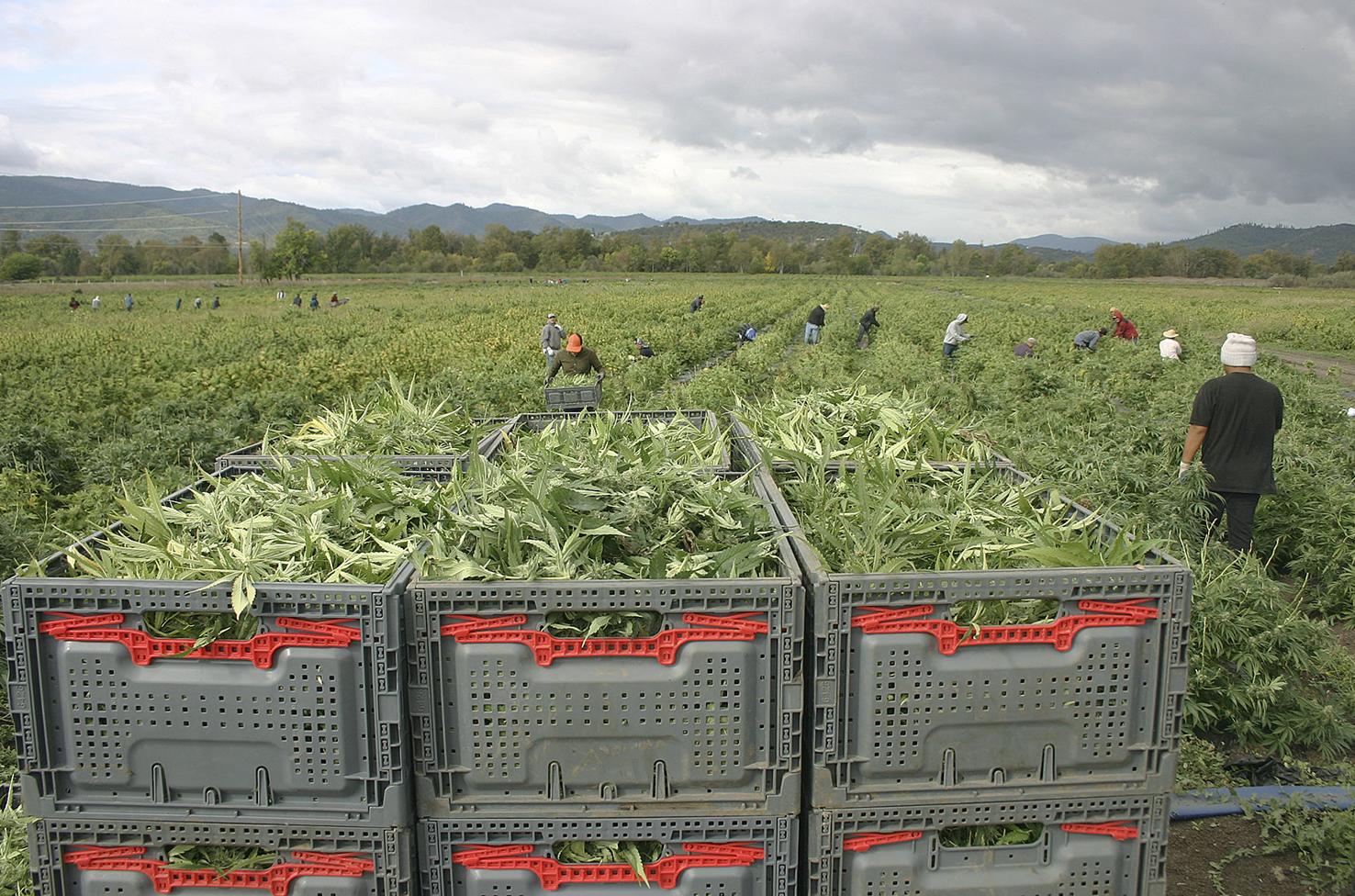You are here
Home 🌿 Marijuana Business News 🌿 Hemp's potential relies on better regulation, more research, experts say 🌿Hemp's potential relies on better regulation, more research, experts say

Thirty years from now, hemp advocates envision the versatile crop will play a prominent role in the U.S. economy, used regularly in the production of everyday products including food, fiber, fuel, pharmaceuticals and building materials.
But getting to that point is not so simple.
Lawmakers must adopt policies to ease the regulatory burden on farmers and processors. Scientists must conduct the research and development needed to pioneer new technologies. Breeders must continue studying hemp genetics that best serve such wide-ranging markets.
That was the underlying theme of the first National Hemp Symposium — looking ahead to 2050, and finding the roadmap for a thriving industry.
More than 20 speakers gave presentations during the two-day virtual event, hosted by Oregon State University's Global Hemp Innovation Center and sanctioned by the National Academy of Sciences Board on Agriculture and Natural Resources.
Jay Noller, director and lead researcher at the center, said the program's focus is advancing hemp so that it is embraced by all business sectors.
"It's all the expected potentials for this crop," Noller said. "How can it get there, and what can be done?"
According to one industry estimate, hemp contributed at least $4 billion to the economy across the U.S. in 2020 and could contribute nearly $16 billion by 2025.
Part of that growth could come from companies like 3M, a multinational conglomerate that produces more than 60,000 products.
Don Davidson, global new product marketing manager for 3M, said customers across the board are asking for more sustainable and zero-landfill solutions, which hemp could offer. He speculated that hemp could be a key ingredient in new industrial-strength adhesives, tapes and even fabrics to make N95 masks amid the coronavirus pandemic.
"Certainly, there are a lot of areas we are looking at," Davidson said. "We know the future is coming at us very fast now. I'm excited to see how hemp can be part of some of those next-generation solutions."
John Plaza, CEO of SkyNRG Americas, a company focused on producing sustainable aviation fuel, is also looking at hemp as a possible feedstock for both biomass and oilseed.
Plaza got his start producing biofuel in the Seattle area, importing canola oil from Canada to use at a refinery in Grays Harbor, Wash. That led him to consider other alternative feedstocks, and specifically hemp.
Under the Paris Climate Agreement, Plaza said the U.S. will need to produce 32 billion gallons per year of low-carbon biofuel by 2030 to meet its projected consumption. Current ethanol capacity is roughly 16 billion gallons per year, and biodiesel is roughly 3.5 billion gallons, allowing for potential growth for hemp-based fuels.
But Plaza added that feedstock would likely need to come from waste streams to make economic sense.
"Fuels have to be the last item in line for monetization of a crop," he said. "We've seen that time and time again."
Elsewhere in the transportation sector, Gregg Baumbaugh, CEO of FlexForm Technologies, said the company is interested in adding natural hemp fiber to its repertoire, making lightweight panels used in the interiors of cars, trucks and airplanes.
For that to happen, Baumbaugh said it must pass rigorous auto manufacturer standards and testing for weight, density, moisture content and, critically, mold and mildew.
"When we buy fibers now, we have specifications that must be met," Baumbaugh said. "Our material has to be very, very clean, so that when they mold it and put the veneer on there, it is a very smooth surface. ... What's important to them is cost and quality."
Other presentations at the symposium focused on the potential for hemp in retail, construction, health products, food and beverage and animal feed.
Unlocking hemp's full potential still requires more work in Congress, said Courtney Moran, a Portland-based attorney and president of the Oregon Industrial Hemp Farmers Association.
While hemp was legalized as an agricultural commodity under the 2018 Farm Bill, Moran said her lobbying firm, Agricultural Hemp Solutions, is working on two primary legislative campaigns: one to raise the legal definition of hemp to 1% tetrahydrocannabinol, or THC, and one to open interstate transportation and manufacturing of hemp products.
These initiatives are essentially to normalizing hemp and encouraging its growth, Moran said.
"Right now, we're setting up the foundation for how this industry will be regulated," she said. "Every single one of these advancements will lead to hemp being respected and viewed more as a regular agricultural commodity."
420 Intel is Your Source for Marijuana News
420 Intel Canada is your leading news source for the Canadian cannabis industry. Get the latest updates on Canadian cannabis stocks and developments on how Canada continues to be a major player in the worldwide recreational and medical cannabis industry.
420 Intel Canada is the Canadian Industry news outlet that will keep you updated on how these Canadian developments in recreational and medical marijuana will impact the country and the world. Our commitment is to bring you the most important cannabis news stories from across Canada every day of the week.
Marijuana industry news is a constant endeavor with new developments each day. For marijuana news across the True North, 420 Intel Canada promises to bring you quality, Canadian, cannabis industry news.
You can get 420 Intel news delivered directly to your inbox by signing up for our daily marijuana news, ensuring you’re always kept up to date on the ever-changing cannabis industry. To stay even better informed about marijuana legalization news follow us on Twitter, Facebook and LinkedIn.




